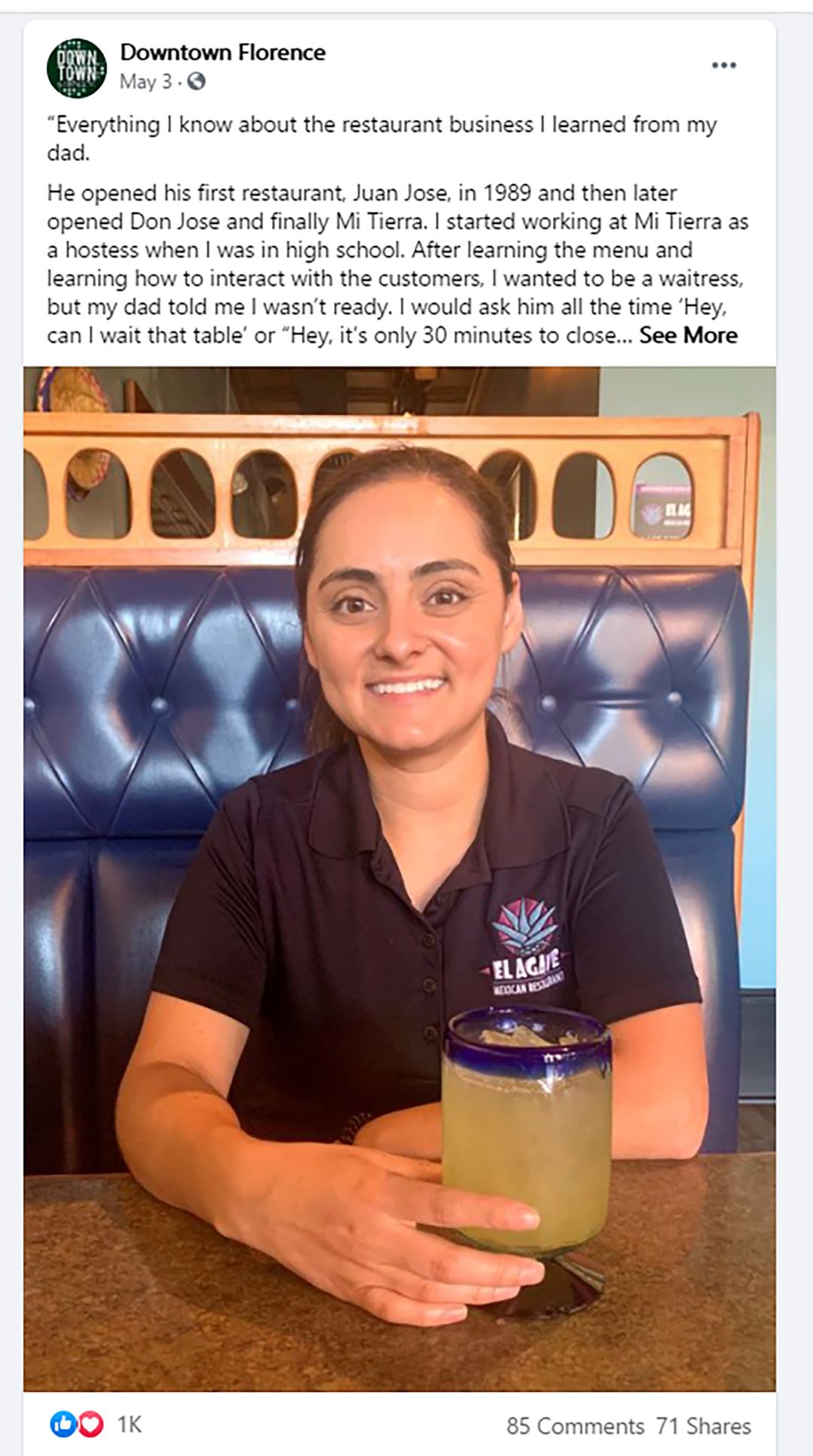When Brenda Perez, co-owner of El Agave Mexican Restaurant in downtown Florence, was approached by Florence’s downtown development staff for an interview for their social media account, she was skeptical of it. Even so, she gave them a story of how she learned the business from her father’s restaurants, rising from her start as a hostess in her teens, and carrying it all the way through to her hope that her four-year-old son might manage the restaurant one day.
The social media content proved to be a hit, and it appeared just in time to drive some extra traffic to El Agave for Cinco de Mayo, with customers talking to her about the story.

Brenda Perez of El Agave Mexican Restaurant became one of the business
owners featured on Downtown Florence’s social media. Photo: City of Florence.
“We really have found with our [social media] stories that we’re telling human interest stories from the perspectives of our business owners and communities,” Hannah Davis, Florence’s Development Manager, said. “They might be talking about their business, but what they’re really talking about is their family, or how they got started.”
Early in 2021, the downtown development technical assistance program Main Street South Carolina partnered with Phil Eich of Storyville Social to offer training on how to develop this kind of social media content for Main Street communities. When Main Street program directors from around the state shared their storytelling campaign results during a recent Main Street SC training meeting, they highlighted successes. For Downtown Florence, a couple of social media posts on El Agave reached some 95,000 people, Davis said. Those posts and others from a one-month period in the spring attracted the eyes of 169,000 unique users.
Main Street Walhalla Director Libby Imbody described the stories as something that could “kill the trolls,” in that they could neutralize the temptation among some social media users to engage in ongoing negative postings about local government and its programs. The stories can replace that focus with engaging, enjoyable stories that draw in enthusiastic and positive responses, online and in person.
The social media audience “love these [stories],” she said. “Love, love, love them. And they’ll share and they’ll always have some sort of memory connected with it.”
The Main Street directors found that the interest generated by the stories could turn into interest for their downtown development programs. Main Street Hartsville Director Lauren Baker noted that the “chatter happening around the table” meant that people who previously didn’t know what Main Street Hartsville was would see the stories on locations like Crema Coffee Bar, Griggs Circle Bakery, or Wild Heart Brewing and would talk about the program.
“Since then, I’ve had an influx of partner applications to come through,” she said.
The directors discussed the techniques they used, like using photo sessions for business owners as a way to get them to loosen up as interview subjects, or making sure to use the best quote in the first 15 words of the post, so that Facebook users would see it without having to click “See More.” They also discussed the heartbreak of losing a good interview when the recorder wasn’t running properly, or the difficulties of using transcription software that could decode most of an interview but could not always decipher a Southern accent.
Main Street Laurens Director Jonathan Irick said he had found that interviewees could become the most relaxed at the very end of the interview and willing to give the most authentic and engaging quotes after he already felt that an interview was complete.
“Just make sure that you don’t cut off your recorder until you are completely done and ready to walk out the door,” he said.
Learn more about Main Street South Carolina.
